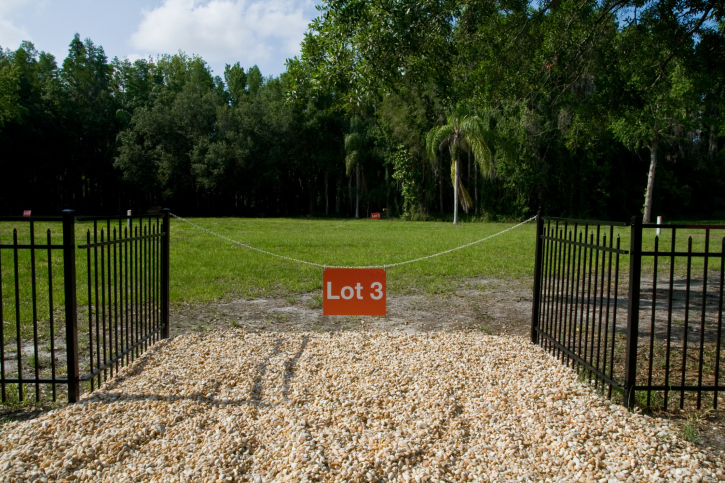Dealing With a Tight Housing Market? 3 Tips to Ensure You Get the Mortgage You Need
 In many cities around the country, real estate prices are on the rise and potential buyers are working hard to find a home they can feel good about. However, finding the right home in a tight market can be even more of a challenge when it comes to striking the right balance. If you’re hedging around the market in the hopes of finding the perfect home, here are some things you should do to ensure you don’t miss out on a good opportunity.
In many cities around the country, real estate prices are on the rise and potential buyers are working hard to find a home they can feel good about. However, finding the right home in a tight market can be even more of a challenge when it comes to striking the right balance. If you’re hedging around the market in the hopes of finding the perfect home, here are some things you should do to ensure you don’t miss out on a good opportunity.
Keep An Open Mind
When wading into the real estate market, it can be very easy to get so enamored with the kind of house you want that you don’t see what’s in front of you. However, not paying attention to the potential of a particular house can mean a missed opportunity that will end up costing you down the road. Instead of waiting around for your dream home, make sure you take a look at homes you might not have thought about as they may end up being a welcome surprise.
Be Confident, But Not Too Confident
Since many homeowners have history with their home, they want a homebuyer who’s going to be just as invested in their property as they were. On the other hand, though, it’s important not to be too excited about a home as the seller may use your interest to get a higher offer. Instead of playing on opposite poles, show your interest and get into the game with a respectable offer, but be willing to back off if the seller isn’t interested.
Don’t Demand Too Much
Many potential homebuyers have been told to be aware during the home inspection and ensure they get the repairs they’re requesting, but in a tight market you may want to let a few things slip. While ignoring certain items like foundation or roof issues can be a major misstep, letting small things like a broken doorknob or peeling paint slide may be something you can easily remedy that won’t push you out of the game.
It can be complicated to get into the real estate market as a new buyer in a competitive market, but by letting the small stuff slide and being open-minded, you may just find the home you’re looking for. If you’re currently getting prepared to dive into the real estate market, contact one of our mortgage professionals for more information.

 Relocating to a new area can be exciting, but it can also be expensive. There are many resources to help, but most cost money. However, if you take your time and plan carefully, you can reduce the expense so you don’t start your new life with new debt. Here are three tips to controlling your moving budget.
Relocating to a new area can be exciting, but it can also be expensive. There are many resources to help, but most cost money. However, if you take your time and plan carefully, you can reduce the expense so you don’t start your new life with new debt. Here are three tips to controlling your moving budget. FHA loans are designed to help individuals take advantage of the benefits of home ownership, and these loans have low down payment requirements. However, for borrowers who choose to make a down payment that is less than 20 percent of the sales price, the borrower will be required to pay a mortgage insurance premium with the monthly mortgage payment.
FHA loans are designed to help individuals take advantage of the benefits of home ownership, and these loans have low down payment requirements. However, for borrowers who choose to make a down payment that is less than 20 percent of the sales price, the borrower will be required to pay a mortgage insurance premium with the monthly mortgage payment. When many people think about investing in property, they think about purchasing income-producing real estate such as a residential property or an office building with tenants. There are indeed many benefits associated with investing in income-producing property. For example, these properties may produce rent that can offset your ownership expenses. However, buying raw land can also be an excellent long-term investment strategy.
When many people think about investing in property, they think about purchasing income-producing real estate such as a residential property or an office building with tenants. There are indeed many benefits associated with investing in income-producing property. For example, these properties may produce rent that can offset your ownership expenses. However, buying raw land can also be an excellent long-term investment strategy. If you are like many other homeowners, your home mortgage payment is the single largest expense in your monthly budget. This is a fixed expense that you will typically be responsible for until your loan is paid in full or until you sell your home, and you may have a 15, 20 or even 30 year term on your mortgage.
If you are like many other homeowners, your home mortgage payment is the single largest expense in your monthly budget. This is a fixed expense that you will typically be responsible for until your loan is paid in full or until you sell your home, and you may have a 15, 20 or even 30 year term on your mortgage.